programs
2015 Education Grants Funded

Agriculture Leadership Grants up to $1,000
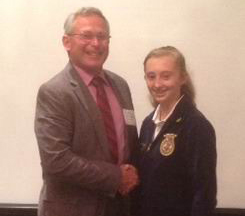
Maine FFA Association – Doug Robertson, Advisor
Since 1930, Maine FFA has helped thousands of students to advance as leaders in agriculture. This year's project supports July 2015 participation by Maines two student officer delegates in the national State Presidents Conference, part of the leadership continuum that prepares them to serve over 500 Maine FFA members.
Fort Fairfield FFA – Jeanne Fox, Advisor
Funding will allow FFA students to attend the 88th national FFA convention in Louisville, Kentucky at the end of October. Students will have the opportunity to meet and compete against other FFA students from all 50 states. Students will also have an opportunity to explore Kentucky and attend various workshops and a career expo.
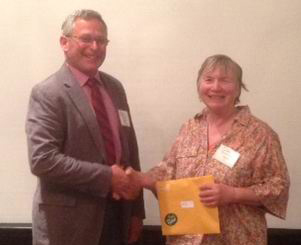
Ashland FFA – Janet Perry, Advisor
Funding will help students attend "Big E" in Springfield Massachusetts. The students will compete in career development events with FFA members from the northeastern states, and will also tour agricultural business and educational sites.
Mars Hill FFA – Whitney Williams, Advisor – $1000
Students will travel to the Big E in Springfield, Massachusetts to compete in agriculture-based career development events, and witness and enjoy numerous other aspects of agriculture including state related agriculture products, agricultural exhibits, animal showmanship, and historical trade demonstrations.

Agriculture Awareness Grants up to $1,000
Mt. Blue High School – Betsy Brady, Director
Students in Nutrition & Foods class will participate in an eight-week farm to plate activity visiting a local farm to learn about food production, four times. Each farm visit will be coupled with a school based food lab where students can use the food harvested to learn about how they can incorporate healthy, local foods into their daily lives.

Harmony Elementary – Naya Clifford, Director
Harmony Elementary will build their first raised bed gardens, supporting their math and science curriculum in alignment with the “real world problems” of the common core standards. The middle school students will engage in spring planting and charting growth of plants based on soil amendments, and pursuant variants in growth rates.
Wells High School – Elisa Allen Beriau, Director
This grant will provide funds for: "Principals of Sustainable Agriculture" – a dual credit enrollment class being taught for the second year. The goals of the course include expanding students understanding of sustainable agriculture and local food production. The grant money will be used for fieldtrips, farm products, and activities.

Memorial Elementary School – Cynthia Wallace, Director
This grant will allow the 1st grade class to set up and grow fish and plants. This will be done through a unique system called aquaponics. Children will interact and observe daily agriculture.
Healthy Communities of the Capital Area – Renee Page, Director
The 2015 Maine Farm to School conference will gather over 150 Farm to School practitioners to share stories, ideas, models, and energy in tracks related to food and farm education, school gardens, and local procurement. Grant funds will provide small stipends to a team organizing workshops, speakers, on-campus fieldtrips, and yummy meals.
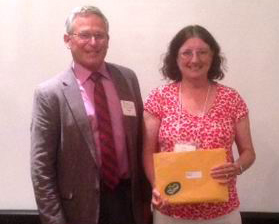
School Garden Grants up to $3000
Messalonskee High School – Beth Prelgovisk, Director
The project is designed to promote a multi-faceted student based learning program in gardening and agriculture awareness. The student led project is focused on completing our newly erected greenhouse to support their classroom studies and Dual Credit Plant Biology Class connected with KVCC.

Messalonskee Middle School – Amanda Ripa, Director
This project will grow healthy foods for our students, cafeteria, and community. Their goal is to establish an educational program that will support their students in meeting learning targets in the classroom while conducting hands on investigations in agriculture in grades 6-8.
Oxford Hills School – Patrick Carson
Roberts's farm, an agricultural educational program administered by the Oxford Hills School District proposes to develop a middle school hydroponics program that partners with the Center for an Ecology Based Economy, Maine Farm to School Network, and Healthy Oxford Hills.

Ames Elementary School - Julie Allen, Advisor
The grant will fund three gardens to grow vegetables and herbs. This collaborative activity will be placed on school property and will allow students to learn the wonders of planning, building, planting, maintaining, and harvesting produce.
REAL School – Christine Caputo
This program supplies fresh greens to their school lunch program. The students would like to add an entrepreneurial component to provide local restaurants with fresh greens, as well as partner with Hayward farm to increase available produce that Farmer Phil sells at the farmers market.

East Grand School – Dawn Matthews
East grand school has a vision to connect to our students to the natural environment, their community, and to each other by connecting more kids to gardening activities through project based hands on learning, cooperative activities between classes, as well as providing fresh produce to the cafeteria.
Waterboro Elementary School – Melisa Brandt
The goal of the program is to build a greenhouse to provide classroom space for students to learn how to grow their own plants from seeds, learn where their food comes from, and to provide food donations to our local food pantry. Many teachers use seed starting, dirt babies, and sunflower as part of their curriculum. Having a greenhouse and additional raised beds on campus will allow us to expand on these lessons while giving them space for projects.

Westbrook School Department – Guyla Woodbrey
Our districts rapidly changing and increasingly diverse student population provides an exciting opportunity for garden based education both during, and after school. Saccarappa will use funds to purchase a small greenhouse.
Cornville Regional Charter School – Angela Dunton
This program will bring learning to life while integrating agricultural education and service learning school wide. Students have designed nine vegetable gardens and are building cold frame raised beds. Produce will be grown, harvested, cooked and served by students at school for four separate Harvest-A-Meal events.
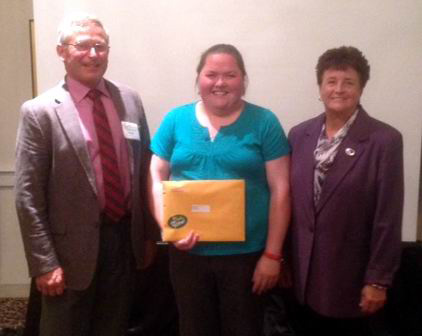
Ag Awareness Grants up to $3,000
Albert S. Hall School – Mary Dunn
Funding will expand our children's exposure to, understanding of, and appreciation for where in Maine our food comes from. This will include our year-round gardening program, monthly taste testing, visits by local farmers, as well as a farm visit for students.
Grey-New Gloucester – Kelly Burgess

This project will offer a variety of local field trips and agricultural activities within three classrooms for 90 Pre-K children enrolled. The youngest learners will have the opportunity to experience a local apple orchard and a fall harvest, local farm animals and their products and the tradition of fishing and Lobstering in Maine. They will offer a wide range of Ag related classroom activities as they prepare for and expand upon these seasonal fieldtrips.
Healthy Communities of the Capital Area – Caroline Moore
They will connect students in Augusta, Gardiner, and Maranacook schools to local foods to help them grow up healthy by facilitating hands-on, agricultural based lessons in the classroom, school gardens, and cafeterias through both direct education and "teaching the teacher" models.

Northeast Livestock Expo – Cindy Kilgore
Funding will be used to provide transportation costs to schools wishing to bring students in grades K – 6 to the NELE in 2016. Students will learn the origin of their food and the numerous ways livestock are used in farming. These activities are hands on and allow the youngsters to touch the animals and ask questions.
Child Study Center – Kevin L. Duplissie
This project is geared toward 40 preschool children, their families, and up to 100 UMaine students teaching the importance of agriculture in their lives. Using existing and new AITC projects from the workshops at National Conference in Kentucky, the work study students will introduce an agriculture activity from different states across the USA.
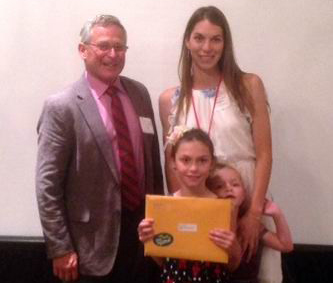
Sanford Regional Technical Center– Kate Osediacz
This project will provide tools and transportation needed for students to learn how to manage apple orchards through participation in fall orchard floor clean up and fruit gleaning, winter pruning, and spring flower thinning on local orchards.
Hampden Academy– Brittany Layman
The students will be keeping hives of honey bees in a fenced enclosure on the grounds of the school. An observation hive will be installed inside a science classroom bringing agriculture (bees) right into a Maine classroom. The bee project aligns with many aspects of curriculum studying impacts of environmental factors on pollinators.

Maine Region 10 Technical High School– Ellen Turcotte
Funding will be used to enhance the existing Maine Region 10 Technical High School Food Trades program through educational field trips to focus on local food procurement practices to increase the usage of Maine grown, processed and produced foods in their Region Ten Café and in the students future careers.
Leavitt Area High School– Marcia Martin
This will teach students the impact of agriculture by educating them about agricultural concepts through hands-on learning, farm tours, and service projects to foster understanding of agricultural hobbies and lifestyles.
